
In the realm of business operations, a well-established and efficient network infrastructure is the backbone of success. The question what is Enterprise Networking is not just a matter of technological awareness; it’s a strategic move towards unlocking the full potential of your business operations. Welcome to “Enterprise Networking 101,” a comprehensive guide that transcends tech jargon to bring clarity to the transformative world of enterprise networking.
As we embark on this journey, it’s essential to assure you that the insights shared here are not just theories. This guide is fortified by the industry expertise and best practices of NCS, a distinguished managed service provider serving the Midwest for over 25 years. Our commitment to excellence ensures that the information you receive is not only accurate but also relevant to the practical needs of modern businesses.
Let’s dive into the foundations of enterprise networking, unraveling the intricacies to pave the way for a network infrastructure that propels your business towards unprecedented success.
Definition:
Enterprise networking is a robust system that allows computers and devices within a business to talk to each other securely. It’s the system that enables employees to share information, access resources, and communicate digitally. Whether in the same office or across the country, enterprise network products ensures a seamless connection, making sure everything runs smoothly in the digital realm of a company.
Table of Contents
Tangible Benefits of Enterprise Networking

In the contemporary business landscape, implementing enterprise network solutions is not merely a technological convenience but a strategic imperative. From facilitating unified communication within the office premises to safeguarding critical business information, enterprise networking transforms the way organization’s function, enabling them to navigate the complexities of the digital age with agility and reliability. (What Is an Enterprise Network, Cisco)
- Enhanced Communication: Enterprise networks enable seamless and unified communication within an organization, fostering collaboration among team members, regardless of their physical location. This facilitates real-time information exchange, improving overall efficiency and decision-making.
- Data Security: Perhaps the most important aspect, robust enterprise networks provide a secure framework for the storage and transmission of sensitive business data. With advanced security protocols, businesses can protect their information assets from unauthorized access, ensuring compliance with data protection regulations.
- Improved Operational Efficiency: By streamlining processes and optimizing workflow, enterprise networks contribute to enhanced operational efficiency. Tasks that once required significant time and effort can be automated and executed more swiftly, allowing businesses to focus on strategic initiatives.
- Scalability and Flexibility: As businesses evolve, enterprise networks offer scalability to accommodate growth. Whether expanding operations, adding new employees, or integrating advanced technologies, a well-designed network can adapt to changing business needs without major disruptions.
- Centralized Management: Enterprise networks provide centralized control and management of IT resources. This simplifies network administration, making it easier to monitor, troubleshoot, and maintain the network infrastructure, resulting in consistent and reliable performance.
What is Enterprise Networking Explained:
Building off of the previously stated definition, let’s delve deeper into the complexities of enterprise networking. We’ll explore the fundamental components that enable seamless communication and robust functionality within modern business infrastructures.
Understanding LAN Vs. WAN
Local Area Networks (LANs) and Wide Area Networks (WANs) represent the foundation of enterprise networking. LANs, confined to a localized environment like an office, are the heartbeats of internal corporate communication, providing high-speed connections ideal for close-range data exchange. WANs, on the other hand, stretch across cities, countries, or even continents, enabling businesses to operate and communicate over large distances. While LANs are pivotal for day-to-day operations within localized settings, WANs have become increasingly dominant in today’s globalized business environment, connecting multiple LANs and supporting the expansive reach of modern enterprises. The evolution towards cloud-based solutions and the increasing reliance on remote access technologies have amplified the importance of WANs, making them central to enterprise networking’s contemporary narrative. (What Is Enterprise Networking, Cloudflare)
By weaving together LANs and WANs, businesses can create a network architecture that supports both local and widespread connectivity, ensuring robust, scalable, and flexible communication infrastructures that drive modern enterprise operations.
What is Enterprise Networking Explained:
Key Components
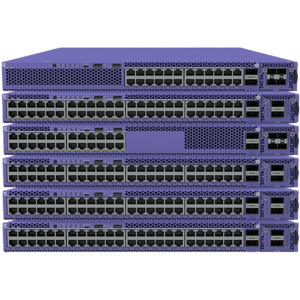
In the intricate world of enterprise networking, several key components work in harmony to establish a robust and efficient network infrastructure. These components are the building blocks that underpin every successful business network, ensuring seamless communication, data security, and operational efficiency. From the powerful servers that process and store vast amounts of data to the sophisticated networking hardware like switches and routers that direct digital traffic, each element plays a pivotal role. Understanding how these components function and interconnect is essential for any business looking to leverage technology for growth and success. By delving into each of these components, we will uncover the essence of what makes Enterprise Networking a cornerstone of modern business operations.
Servers: The Powerhouse of Your Network
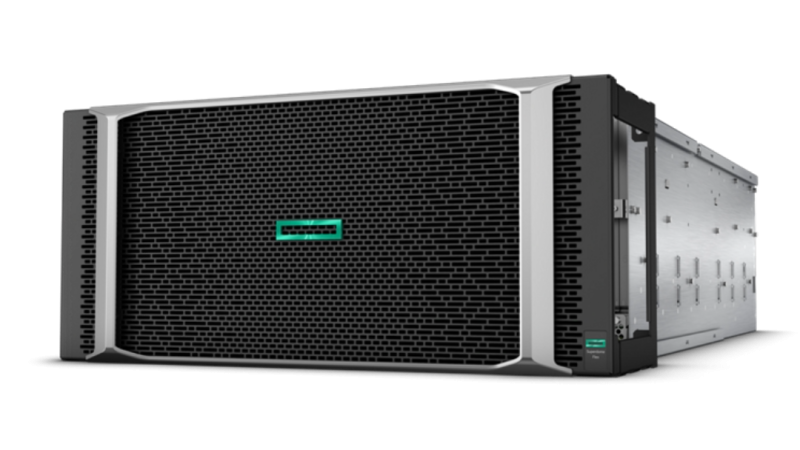
Servers are the powerhouse behind every enterprise network, playing a crucial role in managing, processing, and storing the data that drives your business. In the business world, they are akin to a central hub, facilitating everything from email communications and file sharing to hosting your business applications and managing transactions. By efficiently handling these critical operations, servers empower businesses to operate smoothly and scale effortlessly as they grow.
Technically, servers are robust, high-capacity computers dedicated to processing network resources. They differ from typical desktop computers in their ability to handle multiple tasks simultaneously, manage large volumes of data, and provide services to multiple users or client machines. Whether it’s a local server housed in your office or a virtual server hosted in the cloud, these systems are designed to provide reliable, continuous service, ensuring that your business operations are always running at peak efficiency. By investing in the right server infrastructure, businesses lay the foundation for a network that’s secure, scalable, and poised for future growth.
Network Attached Storage (NAS): Streamlining Data Accessibility
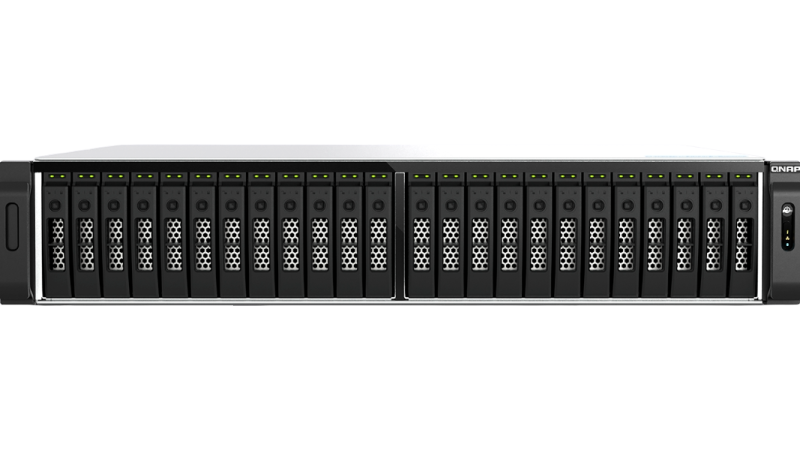
Network Attached Storage (NAS) serves as a dedicated hub for storing and sharing data within your business, making it an indispensable component of modern enterprise networking. For businesses, NAS simplifies data management by providing a centralized data storage location where files can be securely contained, accessed, and shared across the organization. This centralization not only improves data accessibility for employees but also enhances collaboration, as team members can easily access and work on shared documents and resources, regardless of their location.
From a technical standpoint, NAS is a specialized data storage server connected to your network, allowing multiple users and clients to retrieve data from centralized disk capacity. It stands out for its ease of use, scalability, and the ability to undergo data backups with both local and cloud environments. NAS systems come with built-in security features and support for various file-sharing protocols, ensuring that your data is not only accessible but also protected. By incorporating NAS into your enterprise network, you are equipping your business with a flexible and efficient solution for managing the ever-growing data needs, paving the way for streamlined operations and enhanced productivity.
Switches and Routers: The Essential Connectors of Your Network
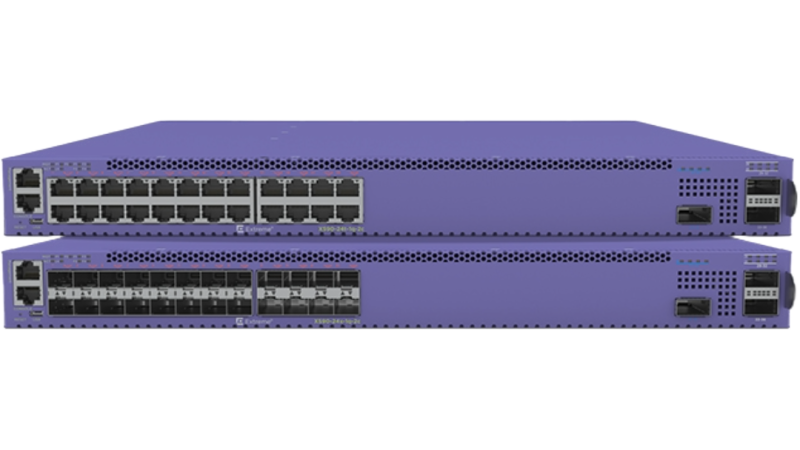
Switches and routers are fundamental components in enterprise networking, acting as the essential connectors that keep your network functional and efficient. While they are often mentioned together due to their collaborative roles in networking, they serve distinct yet complementary functions.
Switches are like the internal managers of your network, responsible for connecting various devices within your network (like computers, printers, and servers) and facilitating communication between them. They operate within your business premises, ensuring that data packets are sent to the right devices. By efficiently managing internal traffic, switches play a critical role in maintaining network performance and preventing data bottlenecks.
Routers, on the other hand, are the gatekeepers between your internal network and the outside world. They connect your local network to other networks, such as the internet. Routers determine the best route for data packets to travel across multiple networks, directing traffic to ensure smooth, secure, and efficient data transmission. They also protect your network by controlling incoming and outgoing traffic and can provide additional security measures, such as firewalls, a topic we’ll discuss shortly.
- Multilayer Switches, Layer 3 VLAN switches are the multitasking powerhouses of network infrastructure, expertly combining the functions of switches and routers. Within your network, they act like advanced internal managers, not only connecting and directing data among devices such as computers, printers, and servers, but also efficiently handling internal traffic to prevent bottlenecks. At the same time, they step into the role of routers, overseeing traffic between different VLANs and connecting your local network to external networks. This dual capability allows Layer 3 VLAN switches to ensure smooth and efficient data flow both within your business premises and to the outside world, streamlining network performance with a blend of precision and versatility.
In essence, while switches keep your internal network connected and communication flowing seamlessly between devices, routers extend this connectivity beyond your organization, allowing your network to interact safely and effectively with external networks. Together, they form the backbone of your network’s infrastructure, enabling reliable digital communication and data exchange that are vital for modern business operations.
Firewalls: The Security Barricade of Your Network
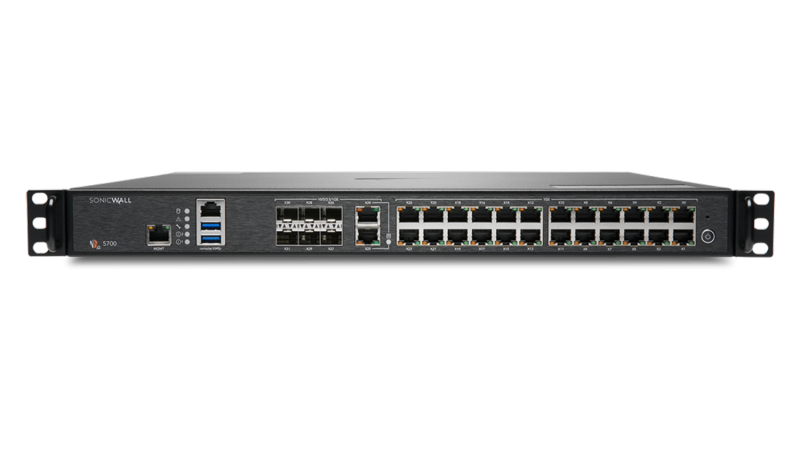
Following the discussion on routers, it’s important to delve deeper into dedicated firewalls – the robust guardians of network security. Firewalls serve as the first line of defense in protecting your business’s digital assets from external threats. While routers manage the flow of data in and out of your network, firewalls scrutinize this data more closely, applying a stringent set of rules to ensure only safe and authorized traffic is allowed through.
Robust Protection Against Cyber Threats: Firewalls are designed to guard against a wide range of cyber threats. They monitor network traffic and use predefined security rules to block potentially harmful data packets. This protection is crucial for shielding your network from malware, viruses, and unauthorized access, keeping your sensitive business data secure.
DPI and SSL Inspection: Deep Packet Inspection (DPI) and SSL Inspection are advanced features that provide robust protection against sophisticated cyber threats. DPI allows the firewall to examine the data within network packets more thoroughly than standard inspection methods, offering a deeper level of security. SSL Inspection is essential in a landscape where encrypted traffic is common; it decrypts, inspects, and then re-encrypts the traffic, ensuring that threats cannot hide within encrypted packets. These features enhance the firewall’s capabilities, providing a comprehensive shield for network security.
Configurable Security Policies: One of the key strengths of a firewall is its configurability. Businesses can set specific security policies tailored to their needs, controlling which traffic is permitted and which is denied. This customization is crucial for adapting to the unique security requirements of different organizations.
Essential for Compliance: For many businesses, especially those handling sensitive customer data, firewalls are not just a security measure but also a compliance necessity. They play a vital role in meeting the standards set by data protection regulations, helping businesses avoid legal and financial penalties.
Active Services for Enterprise Firewalls: To ensure that enterprise firewalls remain effective against evolving cyber threats, active services and support are crucial. These practices involve regular software updates, adaptations to new threats, and regular checks of the firewall’s components. Such maintenance ensures that the firewall is not only functioning correctly but is also aligned with the changing needs and environments of the business network.
Implementing a robust firewall is key to maintaining the integrity and security of your enterprise network. It ensures that your network infrastructure is equipped to handle evolving cyber threats, safeguarding your business’s operations and reputation.
Wireless Access Points (WAPs): Expanding Connectivity in Your Business

Wireless Access Points (WAPs) play a pivotal role in modern enterprise networking by expanding wireless connectivity across your business premises. In today’s dynamic business environments, WAPs facilitate seamless unified communication, allowing employees to connect to the network from anywhere in the office without the need for physical cables. This mobility boosts productivity and collaboration, as team members can work and communicate effectively from various locations, be it conference rooms, common areas, or individual workstations. The deployment of WAPs ensures that your business can cater to the growing need for flexible, mobile-friendly work environments.
Furthermore, WAPs offer an innovative way to engage with customers through custom landing pages. When clients join your business-hosted Wi-Fi network, they can be greeted with a tailored landing page that can serve various purposes. This feature is particularly advantageous for businesses that interact directly with customers, such as retail stores, cafes, and hotels. Custom landing pages can be used for branding, promotions, providing information, or even gathering customer feedback. Additionally, integrating social media logins for Wi-Fi access is a modern approach that offers convenience to your customers while also opening avenues for social media engagement and marketing.
WAPs act as a bridge between a wired network and wireless devices. They connect to your existing wired network via a cable and then provide a Wi-Fi signal to which wireless devices can connect. This setup enables devices like laptops, smartphones, and tablets to join the network, access resources, and share data.
WAPs support various wireless standards, such as Wi-Fi 6, ensuring high-speed connectivity and efficient data transmission. With features like multiple SSIDs (Service Set Identifiers) and VLAN (Virtual Local Area Network) support, WAPs can also offer segmented and secure access to different user groups, enhancing network security and management. This segmentation is particularly crucial for maintaining a secure network environment. For example, implementing VLANs enables you to create a separate guest network. This is highly recommended for devices such as smartphones and other personal devices, which should ideally connect to the guest network rather than the private network. This practice not only helps in maintaining the integrity and security of your main network but also ensures efficient network performance by segregating traffic.
SD-WAN: Streamlining and Optimizing Your Network
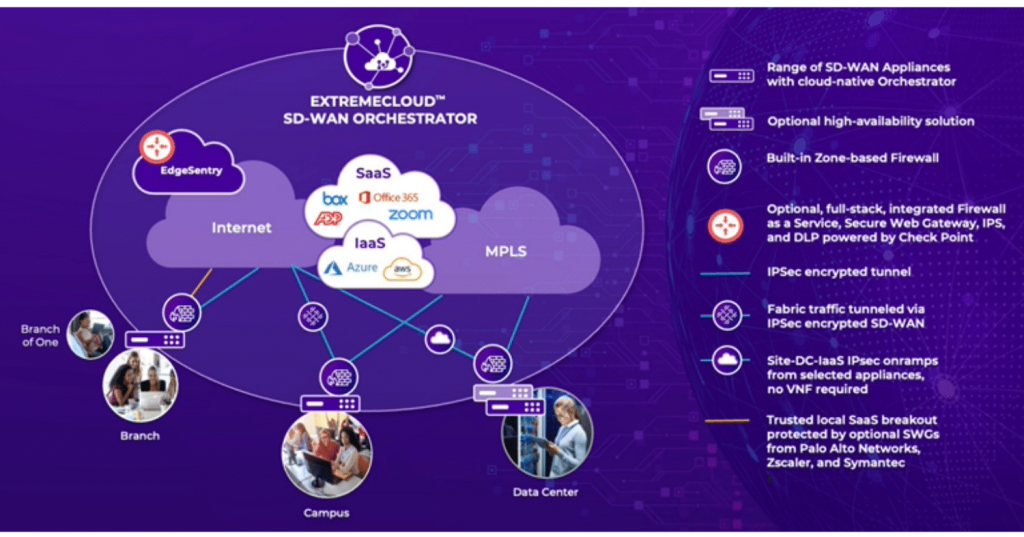
Software-Defined Wide Area Network (SD-WAN) technology is revolutionizing how businesses manage and optimize their networks. In the realm of enterprise networking, SD-WAN offers a transformative approach to handling network traffic, ensuring efficiency and reliability across widespread locations. For businesses, this means enhanced network performance, reduced complexity, and cost savings. SD-WAN allows for more intelligent and flexible management of network connections between different office locations, data centers, and cloud services. This adaptability is particularly beneficial for businesses with multiple branches or those increasingly relying on cloud-based applications, as it ensures consistent, high-quality connectivity across all points.
Technically, SD-WAN leverages software to control and optimize the flow of data over a wide area network. It replaces traditional, rigid network architectures with a more agile and responsive setup. Key features include the ability to dynamically route traffic across the most efficient paths and automatically adjust to changing network conditions. This capability ensures optimal performance and minimizes disruptions. SD-WAN also incorporates advanced security features, integrating them directly into the network infrastructure. This integration provides a more cohesive and streamlined approach to security, which is crucial as network perimeters expand and become more complex. By implementing SD-WAN, businesses can not only improve their network efficiency and performance but also gain a strategic edge in managing their digital infrastructure.
NCS Enterprise Networking Solutions
As we reach the conclusion of our journey through the essentials of enterprise networking, it becomes clear that the right network infrastructure is pivotal to any business’s success. At NCS, we specialize in providing comprehensive enterprise networking services that cater to these very needs. Our expertise lies in understanding the unique challenges and objectives of your business and offering solutions that align perfectly with your goals.
Tailored Solutions for Every Business Need
Recognizing that no two businesses are alike, here at NCS we use our Best Practices and Proven Process to deliver tailored networking solutions. Whether it’s implementing robust firewalls for enhanced security, setting up efficient WAPs for seamless wireless connectivity, or deploying advanced SD-WAN technology for optimized network performance, our solutions are designed to meet the specific demands of your business. Our team of experts ensures that every aspect of your network, from switches to servers to NAS systems, is integrated and configured to support your operations flawlessly.
Connect with Us for a Customized Networking Strategy
Embarking on the path to network optimization and security doesn’t have to be a daunting task. If you’re looking to enhance your business’s network infrastructure or seeking advice on where to start, we’re here to help. Contact NCS today for a consultation, and let’s build a networking solution that propels your business forward. Our commitment is to equip your enterprise with a network that’s not just functional, but a strategic asset in your growth and success.




